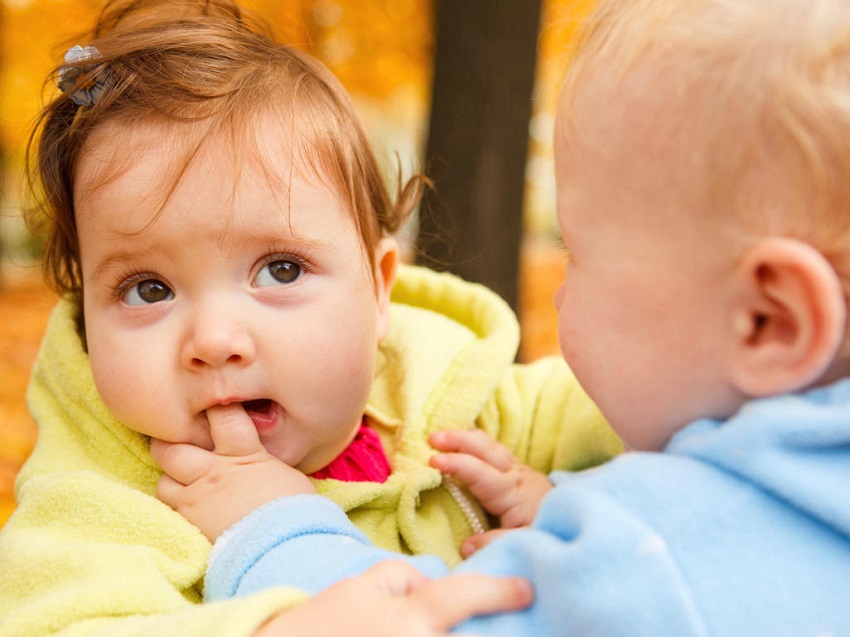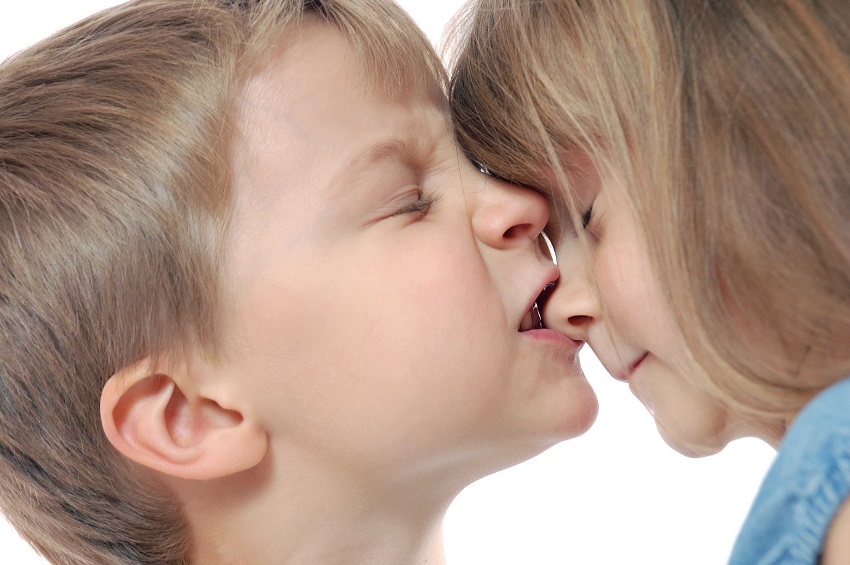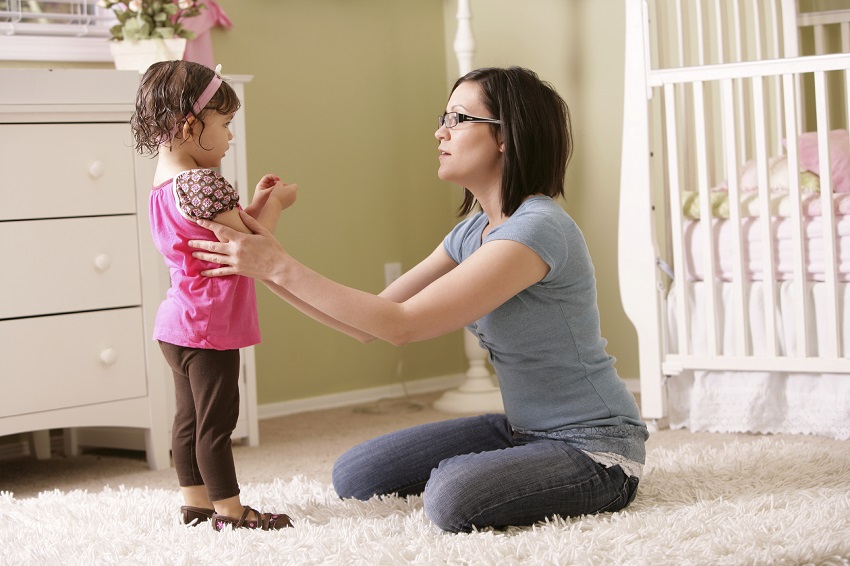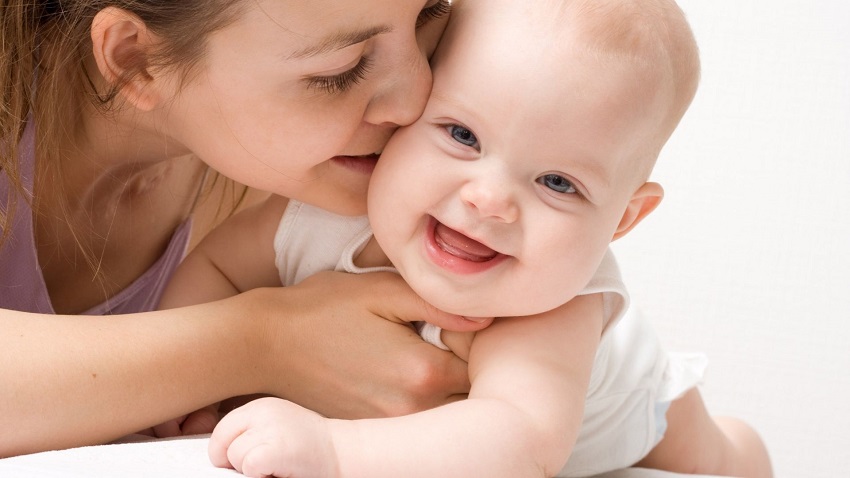Children biting from about 2 to 3 years old. When they begin to know emotions that they previously did not have (such as anger, frustration, anger or jealousy), and do not know how to channel what they feel toward positive behavior, what can happen is that they try to bite.
Although it may be a fact that does not pose any serious problem, it is very frequent. Children still do not know how to express what they feel and they express it by biting.
1. Why do children biting?
Understanding what is behind the bite is the first step in getting children to stop having this aggressive behavior. Generally, bites occur when children are under the supervision or care of strangers and not when they are with parents.
But, of course, it also happens that children biting parents or siblings. The bite expresses something and it is what corresponds to find out. Children biting because there are situations in the home that alter them, these can be:
- The death of a close relative or of a parent.
- The arrival of a new baby that generates jealousy.
- Divorce or separation of parents.
- A move, is no longer in the known home but changed its environment and lost its referents.
- It witnesses acts of intrafamily violence.
- Children biting because they feel frustration, loneliness, helplessness.
- There is a need for affection or autonomy.
- They are very upset or overly stimulated.
- By imitation, that is, they bite because they were bitten.
- Children biting, even to express love.
- They bite when they feel anger or fear.
2. What to do when children biting?
Just as it is common for children to bite at a young age, it is also common for them to stop doing so as they grow older. However, knowing that it is common does not reassure the parents of children who have this behavior, even less the parents of children who are bitten.
But when you see yourself in the situation of seeing your child bite or the teacher informing you that your child has bitten, we recommend you follow the strategies that we explain below. It is a good way to help your child overcome this stage as soon as possible.
You may be interested to read: 8 Tips to sleep in summer without passing heat
3. Serve the bitten child without ignoring the one who bit
Calmly and softly check the bitten child, but do not ignore the child who bit. Attend first to the attacked child, make sure he does not need medical attention so that the child who generated the behavior realizes that the action of biting does not monopolize your attention.
You must involve the child that bites into the care and attention towards the attacked child so that he can perceive that his action caused harm and pain. But do not treat the aggressor coldly, a distant treatment will only make the child close and does not want to help you when you ask him for explanations of why he behaves.
4. Keep calm and do not punish
Although it is easy to get carried away by the disgust of seeing the child having a behavior as aggressive as biting, you have to stay calm. A violent response, excessive reprimand or punishment will only feed the feelings of anger and frustration that trigger misconduct.
With a lot of calm and softness, he gives a simple explanation to the child, so that he understands that biting hurts, which is a behavior that he should not repeat again, however angry he may be.
5. Talk to your child about how to act when he is angry
Teach your child that he should seek help with the nearest adult when he gets angry. As bites are more frequent in daycare centers and preschools, teach your child that he should learn to express what he does not like and tell the teacher that he is angry. Talk before assaulting the child that made him angry.
If another child removed the toy he was playing with, for example, he must learn to tell the other child that he does not like what he did. Then immediately notify the teacher what happened so that she will be the one to resolve the situation.
Of course, it is very important that you also talk to the teacher or caregiver. It is necessary to know how he is channeling the aggressive situations that children present.
6. Use positive reinforcers
Something much more effective than focusing on aggressive behavior is to reinforce positive behaviors. After 3 years, children enjoy the company of other children. Every time he is playing quietly with his peers, he praises his good behavior. “How well you played today with your friend! I congratulate you, you did very well. “
At the same time, he talks about biting. When they are eating, they talk about why they bite bread or fruit (to appreciate its flavor, to feed us), and explain why you should not bite your friends.
7. Never bite your son
Some believe that if they return the bite the child will understand that biting is painful. Nothing is further from reality. A child receiving a bite from their parents learn that it is an acceptable behavior to release anger and anger.
The example we give to the children is stronger than the arguments we can teach him. Do not bite your child, not even as part of a game or joke.
8. Watch and stop
While children learn to control themselves, we must be attentive to what are the factors that trigger bites. In this way, it is possible to visualize what factors are triggering the moment in which the children take this reprisal and prevent it from happening.
The moment you see that your child is about to bite, you must be forceful. Without losing your calm, remove him from the situation and explain why he is doing wrong. “It’s wrong to bite, I will not allow you to bite your friend.”
To end
Finally, but in reality, it is the most important thing, remind your child that you love him. The love you give your child will help him express the reasons that lead him to bite and not control himself. It must be clear that you disapprove of this behavior, but that you have not stopped loving him.
Tags: children bite, children biting, when your children biting









Leave a Reply